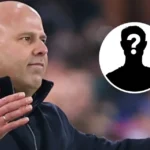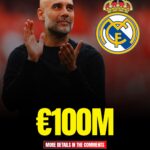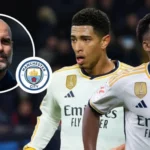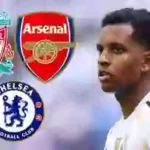Xabi Alonso’s Decisive Call on Real Madrid’s Future: The Rodrygo Saga and Arsenal’s Summer Ambitions
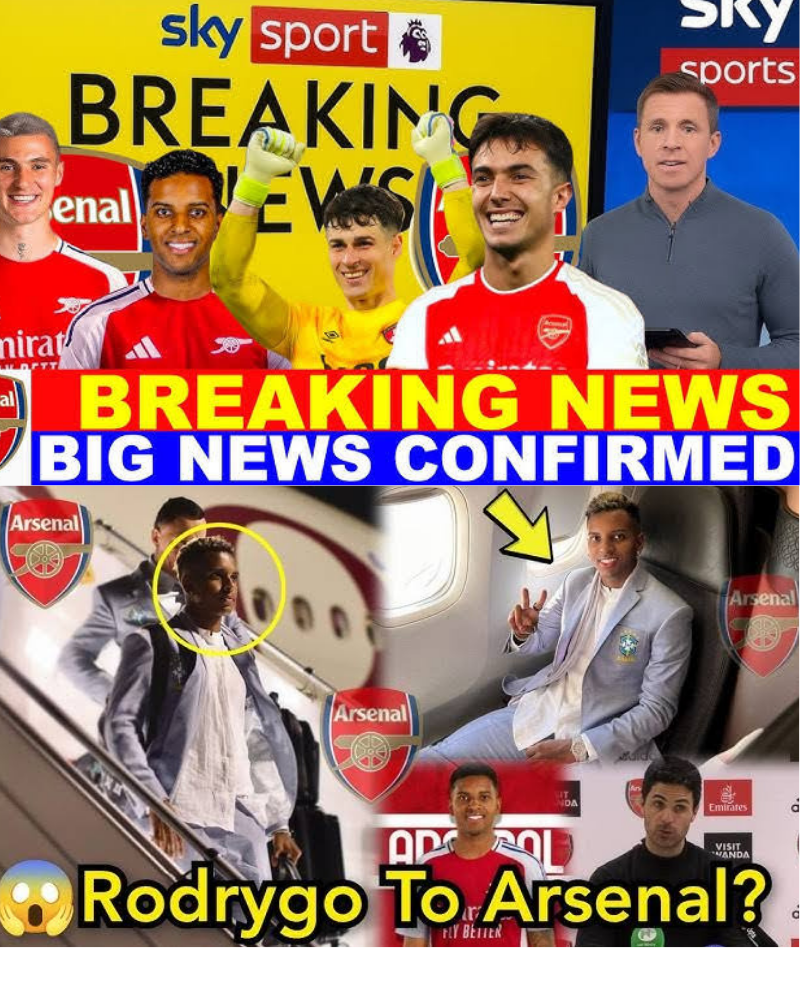
The summer transfer window has brought unprecedented changes to Real Madrid, with new head coach Xabi Alonso facing crucial decisions that will shape the club’s trajectory for years to come. As Los Blancos navigate through a period of transition, one particular situation has captured the attention of football enthusiasts worldwide: the future of Brazilian winger Rodrygo Goes and Arsenal’s persistent interest in securing his services
Xabi Alonso’s appointment as Real Madrid’s head coach marks a significant shift in the club’s strategic direction. The 43-year-old Spanish tactician, who made his name as a player at Liverpool and Real Madrid before establishing himself as one of Europe’s most promising young managers, now faces the monumental task of maintaining the club’s winning tradition while implementing his own footballing philosophy.
The transition period has already seen substantial changes in the squad composition. The arrival of Trent Alexander-Arnold from Liverpool represents a statement of intent, bringing Premier League experience and tactical versatility to the Madrid backline. The former Liverpool captain’s unveiling earlier this week sent shockwaves through the football world, with many viewing it as a coup for the Spanish giants.
Additionally, the acquisition of Dean Huijsen from Bournemouth for a reported £50 million demonstrates Madrid’s commitment to strengthening their defensive options. The young center-back’s potential and physicality align perfectly with Alonso’s vision for a more robust defensive structure, particularly given the uncertainties surrounding several existing squad members.
However, these arrivals come at a time when the club is also dealing with significant departures. The impending contract expirations of Luka Modric, Lucas Vazquez, and Jesus Vallejo at the end of June represent the end of an era for some of these players. Modric’s potential departure, in particular, symbolizes the conclusion of one of the most successful periods in the club’s history.
At the center of the current transfer speculation sits Rodrygo Goes, the 24-year-old Brazilian winger whose future at the Santiago Bernabéu has become increasingly uncertain. Despite his undeniable talent and contributions to the club’s recent successes, Rodrygo found himself falling out of favor during the latter stages of the 2024/25 campaign under Carlo Ancelotti’s management.
The Brazilian’s situation reflects the harsh realities of modern football, where even the most gifted players can find themselves marginalized due to tactical preferences, squad rotation needs, or simply the emergence of alternative options. Rodrygo’s versatility, which allows him to operate across multiple attacking positions, has paradoxically worked against him in some respects, as he has struggled to establish himself as an indispensable starter in any single role.
His technical ability and flair have never been in question. Rodrygo possesses the rare combination of pace, skill, and intelligence that makes him a nightmare for defenders. His ability to create chances from seemingly impossible positions and his knack for scoring crucial goals in high-pressure situations have made him a valuable asset for Real Madrid over the years.
However, the arrival of Kylian Mbappé from Paris Saint-Germain and the continued excellence of Vinicius Junior on the left flank have created a competitive environment where Rodrygo’s playing time has become increasingly limited. The presence of Jude Bellingham, who has established himself as a key creative force in the Madrid midfield, has further complicated the tactical puzzle that Alonso must solve
Arsenal’s interest in Rodrygo represents part of a broader strategic vision under Mikel Arteta’s leadership. The North London club has consistently demonstrated their ambition to compete at the highest level, both domestically and in European competitions. The potential acquisition of a player of Rodrygo’s caliber would represent a significant statement of intent as they look to bridge the gap with Manchester City and challenge for major trophies.
The financial implications of such a move cannot be understated. Reports suggest that Real Madrid would demand a fee in the region of £85 million for the Brazilian, a sum that would represent one of Arsenal’s most significant investments in recent years. The Athletic’s report highlighting the “financial challenges” associated with such a deal underscores the complexity of modern transfer negotiations, where clubs must balance their sporting ambitions with financial sustainability.
For Arsenal, the acquisition of Rodrygo would address several strategic needs. The club has been seeking to add more pace and creativity to their attacking options, particularly in wide areas where they have occasionally lacked the dynamism required to break down well-organized defenses. Rodrygo’s experience in high-pressure situations, having performed on the biggest stages with Real Madrid, would bring an invaluable winning mentality to the Arsenal squad.
Furthermore, the Brazilian’s versatility would provide Arteta with tactical flexibility that could prove crucial over the course of a long season. His ability to play as a traditional winger, a false nine, or even as a central attacking midfielder would allow Arsenal to adapt their system based on the opposition and game situation
The public endorsement from Gabriel Magalhães, Arsenal’s Brazilian center-back, adds an intriguing dimension to the transfer speculation. Gabriel’s appearance on the Podpah podcast, where he expressed his desire to see Rodrygo join Arsenal, represents more than just friendly support between compatriots. It highlights the importance of international connections and personal relationships in modern football transfers.
Gabriel’s comments – “I don’t know [if Rodrygo will join Arsenal]. But I’d like it obviously. He’s a phenomenon. I’ve told people already, he’s a phenomenon! If it was up to me, of course!” – demonstrate the genuine admiration that exists between the two Brazilian internationals. Such endorsements can often play a crucial role in a player’s decision-making process, particularly when considering moves to unfamiliar environments.
The Brazilian connection at Arsenal extends beyond just Gabriel. The club’s recent history of successfully integrating South American players, including the likes of Martinelli and Jesus, has created an environment where Brazilian talents can thrive. This cultural familiarity could prove to be a significant factor in any potential negotiations with Rodrygo.
Moreover, Gabriel’s status as an established international teammate provides a unique perspective on Rodrygo’s abilities. Having worked closely with him during Brazil national team duties, Gabriel understands both the technical qualities and the mentality that Rodrygo would bring to Arsenal. This insider knowledge makes his endorsement particularly valuable and credible.
The praise from Jude Bellingham adds another layer of credibility to the discussion surrounding Rodrygo’s abilities. Bellingham’s assessment of his Real Madrid teammate as “probably the most talented and gifted player in the squad” carries significant weight, given his own status as one of the world’s most promising young midfielders.
Bellingham’s detailed observations – “For me, he’s probably the most talented and gifted player in the squad. I think the things he can do with the football… We’ll be messing around, and he’ll flick the ball up somehow, and you’re like: ‘How’d he do that?’ I’m trying to do that. I’m twisting my ankles and everything like that” – provide insight into Rodrygo’s technical superiority and natural ability that extends beyond what is visible during matches.
Such testimonials from teammates often reveal aspects of a player’s game that statistics and match footage cannot fully capture. The fact that Bellingham, himself a player of exceptional technical ability, expresses such admiration for Rodrygo’s skill set suggests that the Brazilian possesses rare qualities that set him apart even at the highest level of professional football.
The English midfielder’s comments also highlight the human side of football, showing how players genuinely appreciate and learn from each other’s abilities. This mutual respect and admiration within the Real Madrid squad makes Alonso’s decision regarding Rodrygo’s future even more complex and significant.
According to reports from UOL, Xabi Alonso has made his position clear to Real Madrid’s hierarchy: he wants Rodrygo to remain at the club. This decision represents one of the most significant early statements of Alonso’s tenure as head coach, demonstrating his tactical vision and his assessment of the squad’s current composition.
Alonso’s background as both a player and coach provides him with a unique perspective on talent evaluation and squad management. His experience at Liverpool and Bayern Munich, where he worked with some of the world’s best attacking players, has undoubtedly informed his assessment of Rodrygo’s value to the team. The Spanish coach’s decision to retain the Brazilian suggests that he sees a clear role for him within his tactical system.
This stance also reflects Alonso’s pragmatic approach to squad building. Rather than simply following the path of least resistance by allowing discontented players to leave, he appears determined to maximize the potential of the existing talent at his disposal. Rodrygo’s retention could be seen as part of a broader strategy to maintain squad depth and versatility, particularly given the demanding nature of competing across multiple competitions.
The decision also sends a message to the rest of the squad about Alonso’s commitment to working with players who may have fallen out of favor under previous management. This approach could foster a positive environment where players feel valued and motivated to prove themselves under the new regime
The reported £85 million valuation of Rodrygo reflects the current state of the transfer market, where proven talent at elite clubs commands premium prices. For Real Madrid, maintaining such a valuation serves multiple purposes: it demonstrates the club’s financial strength, protects their asset value, and potentially deters clubs that might not be entirely committed to pursuing the transfer.
From Arsenal’s perspective, the financial outlay would represent a significant investment that would need to be carefully balanced against other squad needs and financial fair play considerations. The club’s recent transfer strategy has shown a willingness to make substantial investments when they identify the right targets, as evidenced by the acquisitions of Declan Rice and other high-profile signings.
The complexity of modern transfer deals extends beyond the basic transfer fee. Salary expectations, agent fees, potential performance-related bonuses, and the impact on squad harmony all factor into the decision-making process. For a player of Rodrygo’s caliber, these additional costs could significantly inflate the total investment required to complete the transfer.
Moreover, the timing of any potential deal could be crucial. With Real Madrid’s new head coach expressing a desire to retain the player, Arsenal may need to consider whether to pursue other targets or increase their offer to a level that becomes irresistible for the Spanish club.
Should Rodrygo remain at Real Madrid, his integration into Alonso’s tactical system will be crucial for both his personal development and the team’s overall success. Alonso’s tactical philosophy, developed during his time at Bayer Leverkusen, emphasizes positional flexibility, high pressing, and quick transitions between defensive and offensive phases.
Rodrygo’s skill set appears well-suited to this approach. His pace and dribbling ability make him an ideal candidate for the quick counter-attacks that Alonso’s system often generates. His technical proficiency and spatial awareness could also make him valuable in the possession-based phases of play that are characteristic of modern football at the highest level.
The Brazilian’s versatility becomes particularly valuable in Alonso’s system, where players are often required to adapt their positioning based on the game situation. His ability to operate in multiple positions across the front line provides the tactical flexibility that modern coaches value highly.
However, the challenge for Alonso will be to create a system that maximizes Rodrygo’s strengths while also accommodating other key players like Mbappé, Vinicius Junior, and Bellingham. The successful integration of all these talents will require careful tactical planning and possibly some innovative solutions to traditional positional constraints.
The resolution of Rodrygo’s situation will have implications that extend beyond just Real Madrid and Arsenal. The transfer market for elite attacking players has become increasingly competitive, with clubs like Manchester City, Paris Saint-Germain, and Bayern Munich all constantly seeking to strengthen their squads with proven talent.
If Rodrygo remains at Real Madrid and successfully establishes himself under Alonso’s management, it could influence other clubs’ transfer strategies and force them to look elsewhere for attacking reinforcements. Conversely, if he were to move to Arsenal, it would represent a significant shift in the Premier League’s competitive landscape and could prompt other clubs to accelerate their own transfer plans.
The decision also reflects the broader trend of player retention versus squad refresh that many elite clubs are grappling with. The balance between maintaining continuity with existing talent and bringing in fresh faces to stimulate competition and improvement is a delicate one that can significantly impact a club’s trajectory.
Xabi Alonso’s decision regarding Rodrygo’s future represents more than just a simple squad management choice. It reflects his vision for Real Madrid’s tactical evolution, his confidence in working with existing talent, and his commitment to building a cohesive team structure that can compete at the highest level across multiple competitions.
For Rodrygo, the situation presents both challenges and opportunities. Remaining at Real Madrid under a coach who values his contributions could revitalize his career and help him achieve his full potential. However, the competitive nature of the squad means that he will need to consistently perform at the highest level to secure regular playing time.
Arsenal’s interest in the Brazilian demonstrates their ambition to compete with Europe’s elite clubs. Whether or not they ultimately secure his services, their pursuit of such high-caliber talent sends a clear message about their intentions for the upcoming season and beyond.
As the summer transfer window progresses, the Rodrygo situation will continue to be one of the most closely watched developments in European football. The eventual resolution will not only impact the immediate futures of the clubs involved but could also influence transfer strategies and squad building philosophies across the continent.
The intersection of sporting ambition, financial reality, and personal relationships that characterizes this transfer saga exemplifies the complexity of modern football. Whatever the outcome, it will serve as a fascinating case study in how elite clubs navigate the challenges of maintaining competitive squads while managing the diverse interests of players, coaches, and institutional stakeholders.
Ultimately, Alonso’s decision to retain Rodrygo may prove to be a defining moment in his tenure as Real Madrid head coach, setting the tone for his approach to squad management and tactical evolution. The success or failure of this decision will likely be measured not just in terms of Rodrygo’s individual performance, but in how it contributes to the team’s overall success in the seasons to come.

